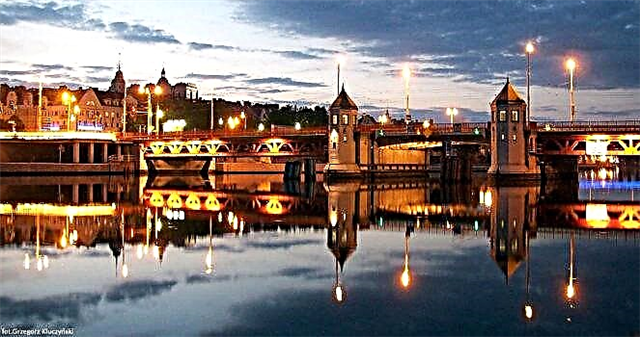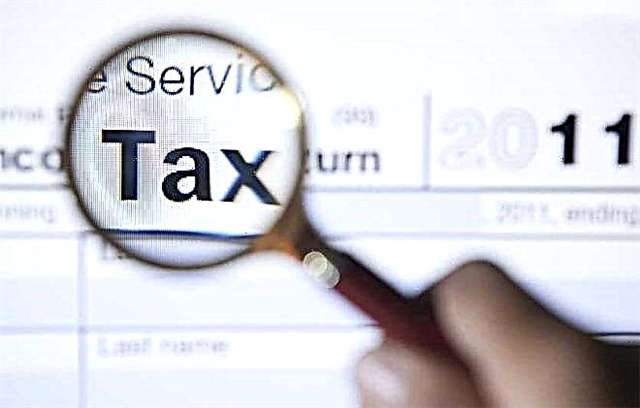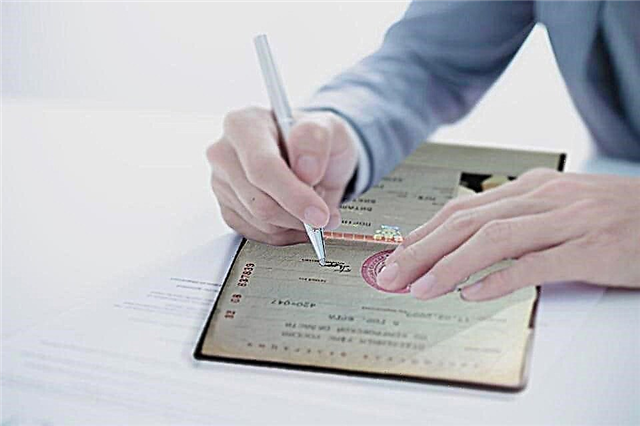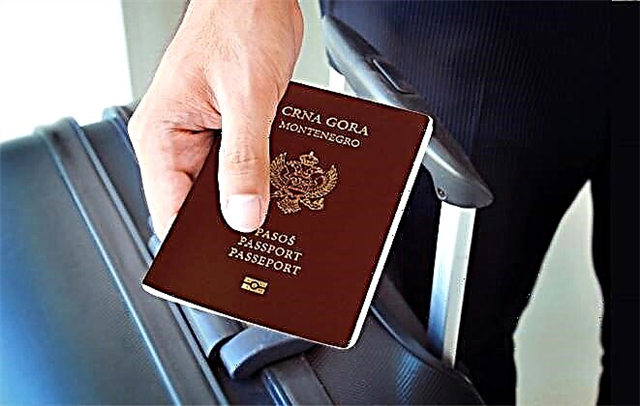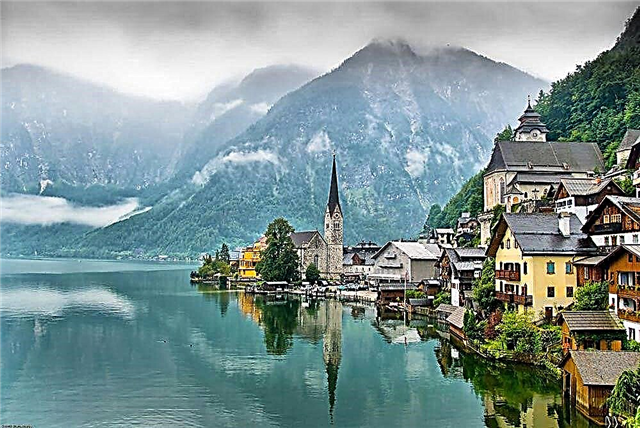Moving to Austria will not be easy due to the strict immigration laws. According to a study conducted by the Council of Europe and the Association of Language Testers in the EU, this state was included in the top three countries with the most stringent requirements for migrants regarding the level of proficiency in the state language already at the stage of requesting residency. Let's figure out how comfortable and financially profitable life in Austria can be.

What level of life do you need to be prepared for?
In various ratings, Austria is annually among the top 15 countries in the world in terms of income, environment, education, the degree of happiness of citizens, and safety.
Despite its small size, the Republic of Austria is one of the countries with one of the most stable economies in Europe. The leading directions of the national economy are:
- agricultural sector,
- tourism,
- mechanical engineering,
- extractive industry,
- non-ferrous and ferrous metallurgy,
- food and light industry.
The main exports are machine tools, construction equipment and electrical engineering.
The standard of living in Austria, in addition to a stable level of income, is also determined by low unemployment, a high level of development of medicine, a stable economy and social protection of citizens, and affordable education.
Take a sociological survey!
Remuneration and employment of the population
The size of wages in the country depends on the profession, region and professional skills of workers. The minimum wage limit is not fixed at the legislative level.
In 2021, a law came into force in Austria that protects the rights of migrant workers from abroad. According to his requirements, employers are not allowed to pay foreign migrants less than citizens of the state.
The minimum you can count on is 1,500 euros per month. The average salary is € 3,500, after taxes is € 2,200.
Compare the level of wages in Austria and other countries of the world will help the article "Average monthly salary: in which countries of the world earn more."
The specialties in demand include:
- engineers;
- technology;
- installers;
- excavators;
- programmers;
- doctors;
- waiters;
- maids;
- nurses.
Every working resident of the republic is obliged to deduct income tax to the treasury. The rate depends on the level of income:
- up to 25,000 euros - 20.44%;
- 25,000-59,000 euros - 33.73%;
- from 60,000 euros - 50%.
For entrepreneurs, there is a 25% rate.
About the process of starting a business step by step, how much it costs, about the taxation system in different European countries, read the article "What business to organize in Europe".
Social security
The way Russians live in Austria is largely determined by the rights of residents who have arrived for permanent residence. The main advantage of the country for foreigners is the absence of discrimination.
The republic has the supremacy of civil and gender equality. Both residents and citizens can enjoy the following benefits:
- medical support;
- unemployment benefits;
- accident insurance:
- paid vacation;
- the right to participate in the public housing program;
- pension payments.
The authorities also provide a number of benefits for single parents, large families and other family benefits.  Each child (regardless of the size of the family) is also entitled to a payment.
Each child (regardless of the size of the family) is also entitled to a payment.
The size of the Austrian pension depends on wages, length of service, contributions to the Pension Fund. Men here go on a well-deserved retirement at 65, women at 60.
On average, retirees receive 77% of their salary, which is approximately 2,000 euros. The minimum pension threshold does not fall below 750 euros.
The parameters that determine the size of the pension, the rating of pensions in Europe, the age of retirement and many other interesting questions are considered in the article “The size of pensions in Europe”.
Medicine level
The average life expectancy in Austria reaches 81 years. This is due to a good environment, a healthy lifestyle and quality medical services.
According to WHO estimates, the Austrian health care system is one of the best in the world. Medicine in the country is insurance, but for some categories of workers the policy does not cover all services. For example, businessmen, civil servants, railway employees pay 15% of the costs themselves.
Initially, patients turn to general practitioners who, if necessary, refer to narrower specialists. Medicines can be obtained free of charge, but you have to pay tax: from 2 to 5 euros for each pack of medicines.
The policy can be purchased both from a state insurance company and from a private one. The difference in contributions will not be too big. They usually differ in the range of covered services, which is broader for private companies.
It is very important to make insurance premiums on time. In the public sector, a delay of 2 months leads to the suspension of the use of the policy. It will be possible to connect a package of services in the same company only after six months, and therefore you will have to look for a new insurer.
Moreover, migrants need a policy not only for safety, but also for the procedure for extending the status of stay in the country.
A little about education
The Austrian education system starts like this:
- up to 3 years old - nursery;
- from 3 to 6 years old - kindergarten;
- from 6 to 10 years old - primary school.
After completing the primary school stage, parents can send the child to a five-year or eight-year school, or they can send a child to a gymnasium. The eight-year school assumes that, after completing the 9th grade, the student moves to high school, in which preparations are underway for entering the university.
Until recently, education in universities in Austria was free for both citizens and residents. Today, many universities have introduced fees that start from 700 euros per semester. The faculties of law, economics and technical sciences are in demand.
A big advantage of studying at an Austrian university is the possibility of internships in local companies, which every year accept about 150 thousand interns. Particularly promising students can receive a job offer from the firm.
Weather and climate
The Austrian Republic is located in the central part of Europe and is surrounded by mountains. The climate in this area is neither typically northern nor strongly southern. Austria is located in a zone of moderate continental climatic conditions. Summers are sunny and warm, winters are mild and snowy.
But the weather and climate in Austria cannot be called even due to the presence of mountains. Each region has its own characteristics:
- Vienna and the metropolitan area have the warmest weather conditions. In summer, the temperature reaches +28 degrees, in winter it drops to + 3 ... + 6.
- Salzburg is one of the leading ski resorts in the country. It is located in the zone of transition from temperate latitudes to mountainous zones. The maximum temperature in summer here reaches +23 degrees, in winter the lowest threshold is - 3.
- Tyrol is another ski resort, where in summer the night temperature does not exceed +6 degrees. In winter, there are significant fluctuations in temperature throughout the day: from - 10 to +1 degrees.
- In the area of the city of Innsbruck, winters with severe frosts and hot summers are pronounced.
How much does life cost in Austria
The cost of living in Austria depends on the region. Prices for basic goods are high, and housing costs and maintenance are also not even the average for Europe.
Life is the most expensive in the capital, and noise and a large number of tourists make the local population prefer the countryside when choosing a place to live. Living outside the city is cheaper and at the same time not much different from the city in terms of comfort.
Housing and expenses for it
Buying real estate in Austria is an expensive pleasure. Not all Austrians can afford to buy their own apartment or house. One square meter of living space in Austria costs 2-3 thousand euros. It is for this reason that the Austrians themselves prefer to live in rented apartments.
The cost of rental housing is also high. Moreover, the larger the settlement, the higher the prices for apartment rent will be. On average, you will have to plan a budget of 400 to 800 euros per month for rent.
For comparison, we give the prices in different cities in the table.
| December | January | February | |
|---|---|---|---|
| Sydney | 17-26 | 19-26 | 19-26 |
| Melbourne | 12-24 | 17-26 | 17-27 |
| Canberra | 11-26 | 13-28 | 13-28 |
| Perth | 15-29 | 17-32 | 17-32 |
| Adelaide | 14-26 | 17-28 | 17-28 |
| Darwin | 25-33 | 25-32 | 25-31 |
Additionally, you need to provide for the costs of utility bills (the amounts are indicated per month):

- electricity and gas - 150-200 euros;
- internet - 40 euros;
- mobile communication - 10-20 euros;
Water and garbage collection are often already included in the rental price.
Food cost
The living wage in Austria, taking into account all expenses, averages 1,000-1,400 euros per month. About 300 euros of this amount is spent on food. In provincial cities, a grocery basket is cheaper: about 200-250 euros per month.
In large settlements, residents have a choice: you can buy food in expensive markets (Billa, Spar), but follow promotional offers, you can give preference to inexpensive shops (for example, Penny Markt or Soma), you can shop at markets where farmers are represented. products (although this does not make them cheaper). Average food prices in 2021 look like this:
| December | January | February | |
|---|---|---|---|
| Sydney | 17-26 | 19-26 | 19-26 |
| Melbourne | 12-24 | 17-26 | 17-27 |
| Canberra | 11-26 | 13-28 | 13-28 |
| Perth | 15-29 | 17-32 | 17-32 |
| Adelaide | 14-26 | 17-28 | 17-28 |
| Darwin | 25-33 | 25-32 | 25-31 |
Home delivery of groceries and ready meals is very popular here. Many shops and cafes even offer free delivery for checks starting at € 10. A dinner in a cafe for two people will cost 20-40 euros.
Traveling by public transport
 Public transport in the country is represented by metro, buses, trams, in some settlements there are trolley buses. A network of railway, bus and air connections has been established between the cities.
Public transport in the country is represented by metro, buses, trams, in some settlements there are trolley buses. A network of railway, bus and air connections has been established between the cities.
To get from one region to another, Austrians use trains and buses. Flights by plane within the state are not in great demand.
The main transport artery of the country is the railway, along which high-speed and regular trains run. The fare is determined by the class, travel distance, ticket type. Discounts are provided for seniors and children.
Public transport within cities can be paid for with a public transport ticket, which costs about 40 euros per month. In Vienna, the underground is popular, which has 5 branches.
Even in Austria, it is customary to move around by bicycles. Bicycle stands are almost everywhere, and there are bike rentals in cities. The cost of one hour of rental is 2-4 euros.
A taxi ride in Vienna will cost 1.44 euros for each kilometer and 3.83 euros for getting into the car. You can buy a middle-class car for 20 thousand euros, and gasoline for February 2021 costs 1.2 euros / liter.
Traditions and peculiarities of mentality
A modern Austrian today can be imagined like this: a person with a well-paid job, accustomed to saving, leading a measured lifestyle without fuss and unnecessary stress.  In the first place among local residents are careers, housing, material values. Only after receiving and accumulating all this, the Austrians begin to think about creating a family and children.
In the first place among local residents are careers, housing, material values. Only after receiving and accumulating all this, the Austrians begin to think about creating a family and children.
In Austria it is not customary to rush, and rushing others is generally considered bad form. This nation is sensitive to criticism. Here they also respect the laws and respect the level of education, culture and upbringing. These factors provide the residents of the state with security, which is considered one of the highest in Europe.
Most of the migrants come from Libya and Muslim countries such as Turkey. And in light of the migration crisis that has arisen as a result of the influx of foreigners fleeing the fighting, we can say that the Austrians do not feel liking for them.
The newcomers are seen here as competitors who live off the state and taxes of local residents, taking jobs. Today, about 12% of the country's population is Muslim.
There are a little more than 5 thousand Russians in Austria. The community tries to maintain communication between compatriots. For this purpose, newspapers and magazines are published in Russian (for example, the New Vienna Journal), and a radio station is operating.
For those who have just arrived, public organizations help with advice of a general and legal order. One of them is the Russian-Austrian Association of Compatriots, established in 2005.
Where is the best place to live in Austria
The choice of a place where life in Austria for Russians will be comfortable and financially feasible depends on many factors.  It is worth taking into account the climatic conditions and the opportunity to find a job, the cost of housing and the prospects for the education of children, as well as the distance from tourist routes, which local residents try to avoid.
It is worth taking into account the climatic conditions and the opportunity to find a job, the cost of housing and the prospects for the education of children, as well as the distance from tourist routes, which local residents try to avoid.
Geographically, Austria is divided into 9 regions, each of which has cultural, economic and gastronomic characteristics:
- The eastern lands are known throughout the world for the only steppe lake in Europe and fertile lands.
- The central part of the country is Salzburg, located between the Alps and the Danube. There are many active salt mines and thermal springs.
- The province of Tyrol is rightfully considered the "heart of Austria" thanks to the best (according to many) ski resort.
- The region of Carinthia is located in the south of Austria. Here are concentrated ancient castles, rivers, reservoirs, which attract thousands of tourists with fashionable resorts.
- The northern part of the state is known for its incredibly beautiful landscapes.
- If you want to live in a village surrounded by mountains, you need to choose one of the settlements of Upper and Lower Austria.
Let's take a quick look at the peculiarities of life in some popular cities:
- Salzburg is a city of world-class festivals. Located in the Alps on the banks of a mountain river. The city was once the seat of the ruling kings. Today, many landmarks and religious monuments can be found here.
- Vienna is annually ranked in the top ten cities in the world in terms of quality of life. It is the cultural, historical and financial center of Europe. Differs in the highest housing prices and a large congestion of tourists, especially in the fall, during the famous Vienna Points. The capital is also home to most of the industrial equipment manufacturers. This should be taken into account when looking for a job.
- Innsbruck is a popular ski resort that has hosted the Olympic Games twice in history. It is best to move here for those who intend to work in the service and tourism sector.

- Linz is a city of contemporary art and new technologies. Its old districts harmoniously coexist with industrial districts.
- Graz is a city of students. Today there are 6 higher educational institutions functioning here. The only jazz faculty in Europe is very popular.
- Feldkirch is a city of winemakers. Every year a wine fair is held here, where producers from all regions of the country come.
Outcomes
Before you make a final decision, it will be useful to read reviews on the forums and chat with those who have already adapted to the country. The pros and cons of living in Austria are also worth considering:
| December | January | February | |
|---|---|---|---|
| Sydney | 17-26 | 19-26 | 19-26 |
| Melbourne | 12-24 | 17-26 | 17-27 |
| Canberra | 11-26 | 13-28 | 13-28 |
| Perth | 15-29 | 17-32 | 17-32 |
| Adelaide | 14-26 | 17-28 | 17-28 |
| Darwin | 25-33 | 25-32 | 25-31 |


